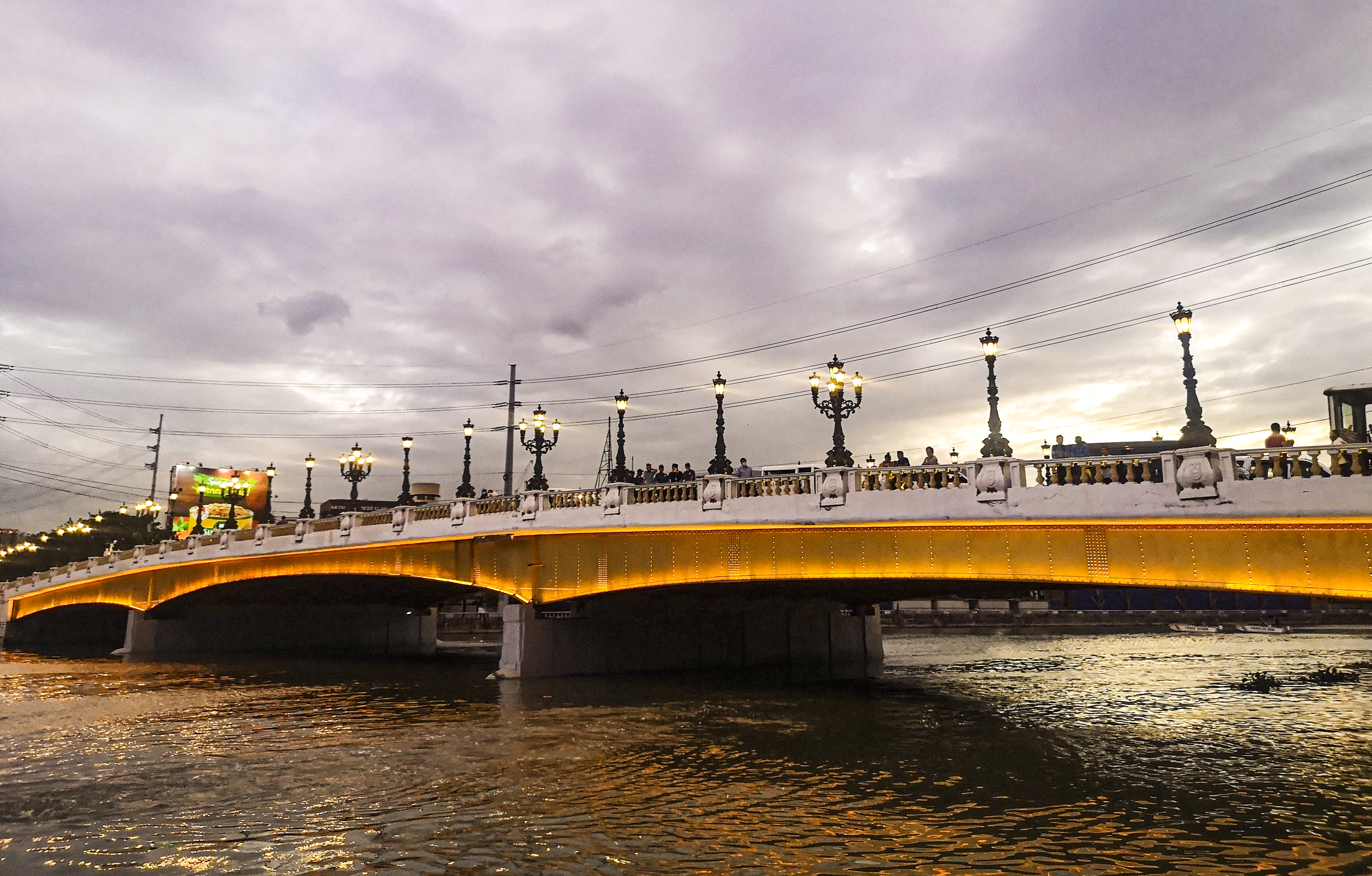By Jose Paolo S. dela Cruz
After languishing for decades due to unsustainable practices and pollution, the Pasig River and Escolta are on the rise as a potential “coosome twosome” for tourists and everyday travelers alike.
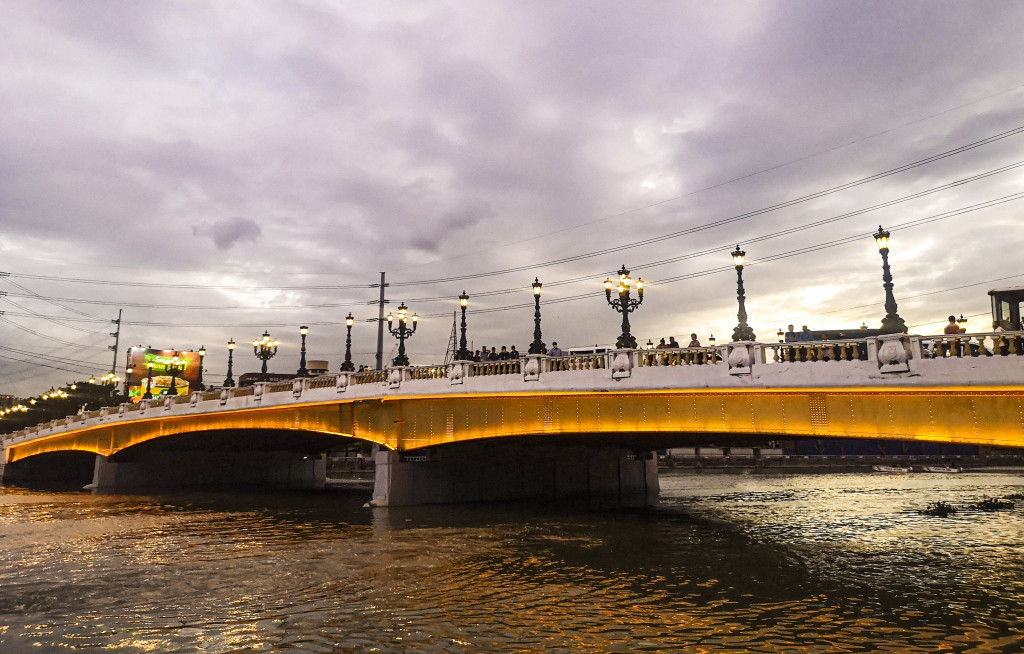
Tourism Secretary Berna Romulo Puyat recently invited members of the media and some VIP guests to experience the newly cleaned Pasig River as a potential alternative, not just for beating the notorious Metro Manila traffic, but for soaking up the sights as well. And so, the Pasig River Hop on Hop Off Ferry Tour was born – a new tour program developed by the Philippine Tour Operators Association (PHILTOA) for individuals, families and groups who want to tour the metro like never before.

“It’s the first time we ever did this. We want to have a tourism circuit, which can start maybe from Poblacion, ride a ferry, and end in Escolta. It’s a new experience that’s an alternative for land travel,” said Puyat. “It’s a work in progress, but we definitely see potential in it.”
All aboard!
The tour started at the Guadalupe Ferry Station – one of 11 from Pinagbuhatan, Pasig to Escolta, Manila. Just as newly minted tourism ambassador Scarlet Snow Belo rang the bell and shouted “All aboard!,” we embarked on modern, air-conditioned ferries that can accommodate a total of 150 seated passengers
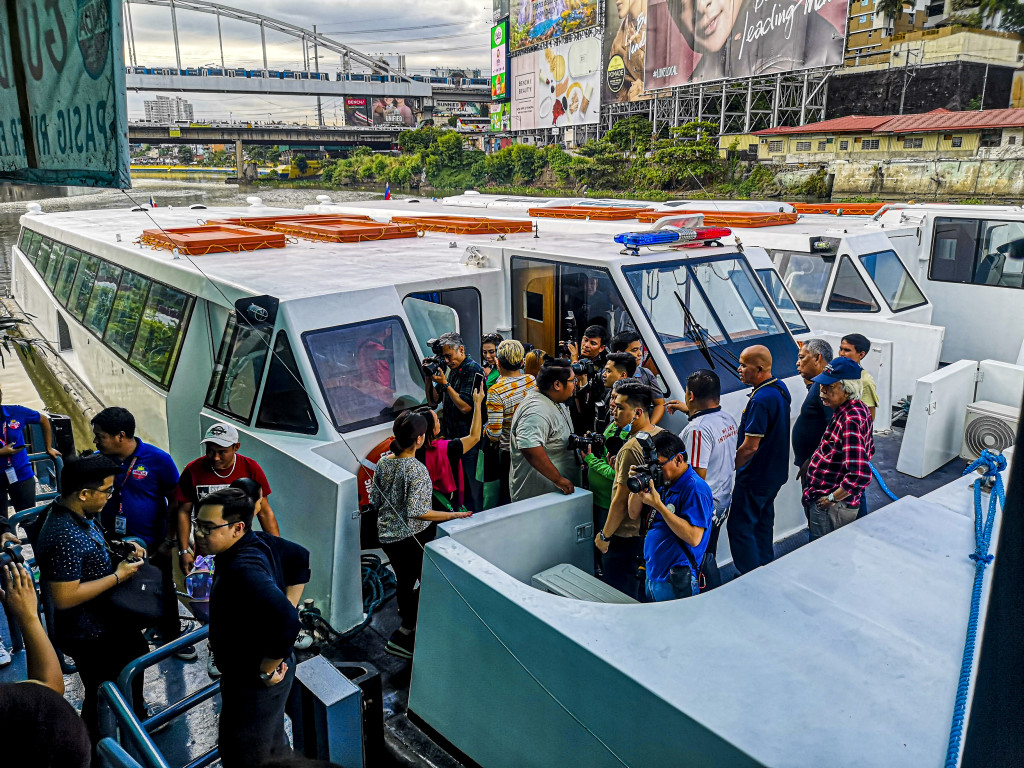
And so, the smooth-sailing ride from Guadalupe to Escolta began.
The river is noticeably cleaner, save for a few stray plastic bottles floating amongst the water cabbages, prompting an exasperated Scarlet to tell her parents, Dr. Vicki Belo and Hayden Kho Jr., “Look, that’s trash. They shouldn’t throw trash here!” Still, the adorable tot was overcome by excitement, spending the entire river cruise at the al fresco bow of the ferry, where she reportedly likened the experience to previous river cruises she had taken before.
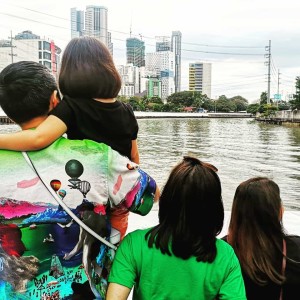
“The government has been cleaning up Pasig River for a year now but nobody knows about it. It has really been more for the benefit of passengers, but, we thought, why not use it for tourism as well?” added Puyat.
A few minutes into the tour and Mandaluyong, Makati and Manila began to enthrall us with their showcase of bridges – Guadalupe, Ayala, Quezon and Mac Arthur Bridge, to name a few. Each one is an architecture marvel, man-made rainbows of steel and cement adding contrast to the orange afternoon skies. Add to that the happy crowds of children who waved at the cruisers from the communities on both sides of the river and we immediately saw why, indeed, “It’s more fun in the Philippines.”
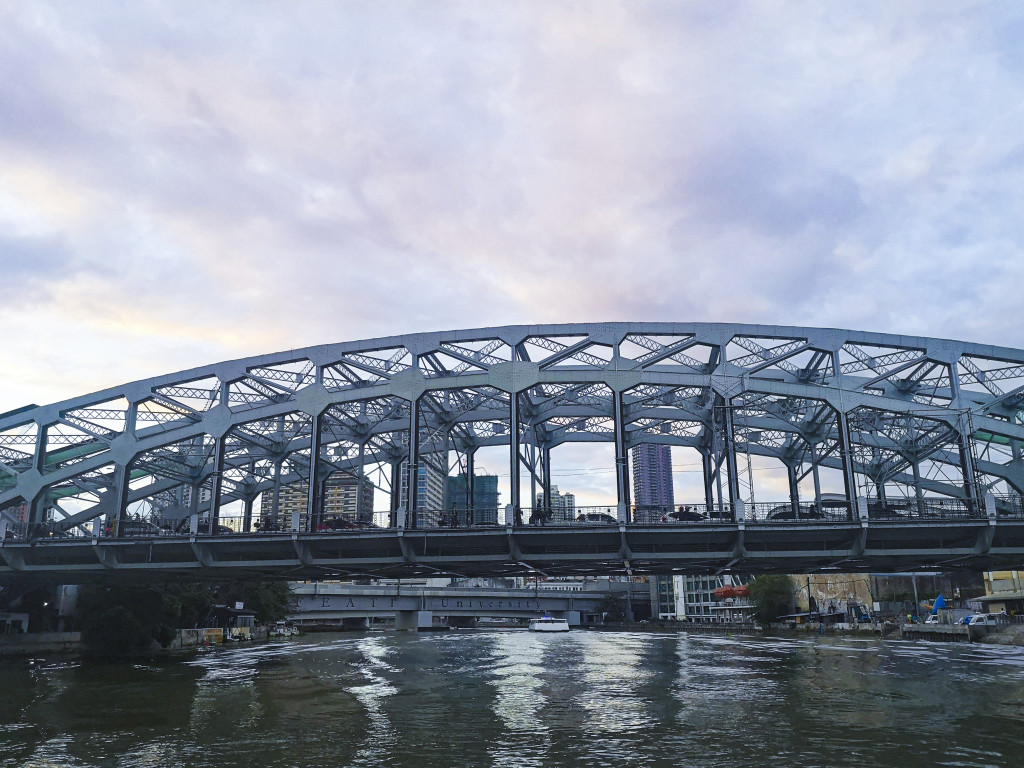
Half an hour into the tour and Manila’s splendor revealed itself on the embankment by way of architecture. The first structure of note was the hero Apolinario Mabini’s house, where he supposedly held secret meetings with our revolutionaries in the past.
However, quickly stealing the limelight was a view of Malacañang, which spans both sides of the river. There, the majesty of the country’s seat of power – a mix of Neo Classical, Old Colonial and even Baroque architecture – looked resplendent with its white edifices, wooden accents and sprawling green gardens.
Sadly, we couldn’t take pictures there. Coast guards boarded the ferry to ensure that no one stole a snapshot from the ferry, as part of the strict security measures imposed on the area. In a way, it’s ok, because we were forced to soak up the view first hand, using just our eyes and memory. I didn’t get to take a picture, yes, but the view of Malacañang from the ferry later proved to be the clearest memory I have from the cruise. A camera may be good and all, but sometimes, nothing beats framing an image with one’s memory.

Then of course, there’s the Neo Classical Manila Central Post Office, which signaled that we have entered the realms of Old Manila. Dramatic against a crimson sky, the imposing building was actually established in 1926 along the waterway so that mail could be delivered faster to cities on the riverside. Even then, the river proved to be a more promising mode of transportation than land.
That being the case, it’s a wonder that we never grew accustomed to fluvial travel, just like, say, the Venetians and their Vaporetto. Surely Pasig River could give the Venice Canal a run for its money, with proper restoration and even more extensive rehabilitation.

A little over an hour passed and finally, we disembarked in Escolta, where a very handsome welcome awaited us. And no, we’re not just talking about Manila Mayor Isko Moreno, who waited by the ferry station.
Rivaling the Mayor’s charisma was the newly restored Jones Bridge, with its arrays of wrought iron lamps that made it look like a sister to Pont Alexandre in Paris.
“We are happy that the Department of Tourism and the national government, as well as the city government and attached agencies have been working together to bring these places to life again,” said Moreno, as he gamely drove us around the walled city as its mayor-cum-travel guide.

Inside the Walled City
After a few bites of Escolta’s fabled hopia, some refreshments and a million selfies by Jones Bridge, we boarded a giant tranvia that took us around The Walled City.
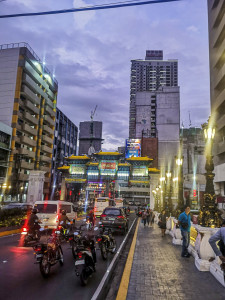
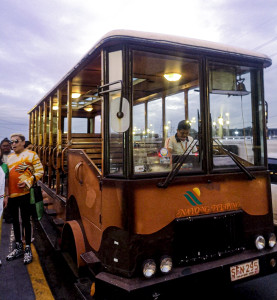
One of the most interesting stops is the President’s Gallery in Intramuros, where artworks featuring the Republic’s presidents are on display. If you point your phone at the images in the morning, it will lead you to a virtual presentation on the history and legacy of these Filipino leaders. There are currently some issues at night due to light, but the DOT is also working on that.
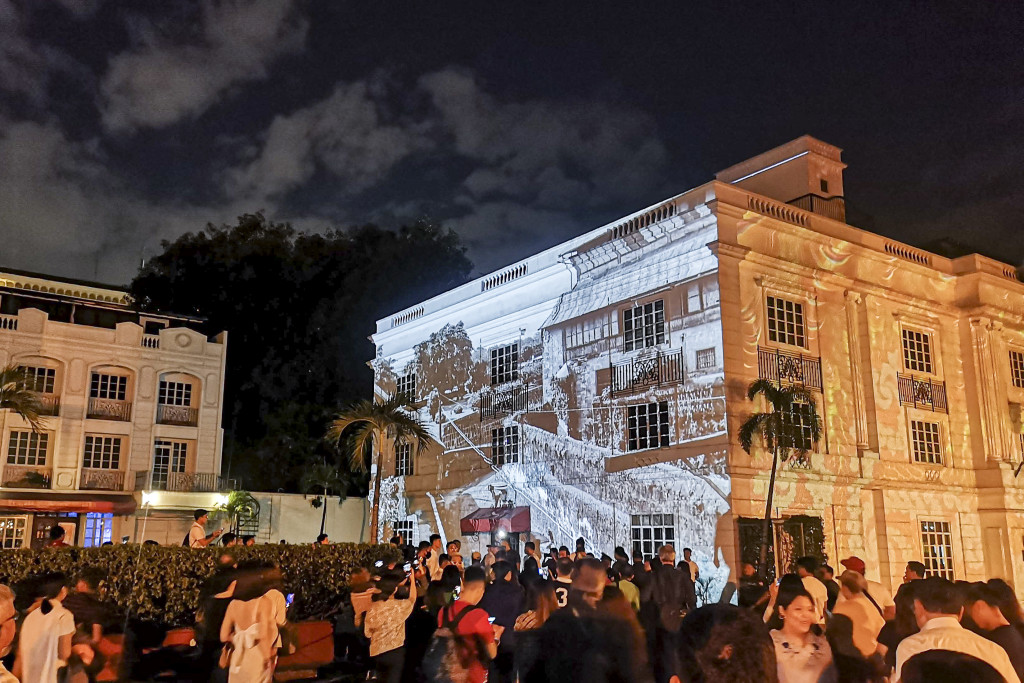
After that, we headed to the United Philippines Line Building, which glowed with magical projections of imagery depicting Intramuros in its heyday. Later, we explored Fort Santiago, whose gardens are now beautifully lit and teeming with visitors. “As you can see, we have young people and families hanging out there now, which is really something that we’ve wanted to develop with these projects,” added Puyat.
The tour ended with an exquisite dinner crafted by PeopleAsia “Women of Style & Substance” Awardee Happy Ongpauco-Tiu at the gorgeous Marble Hall of Ayuntamiento de Manila.
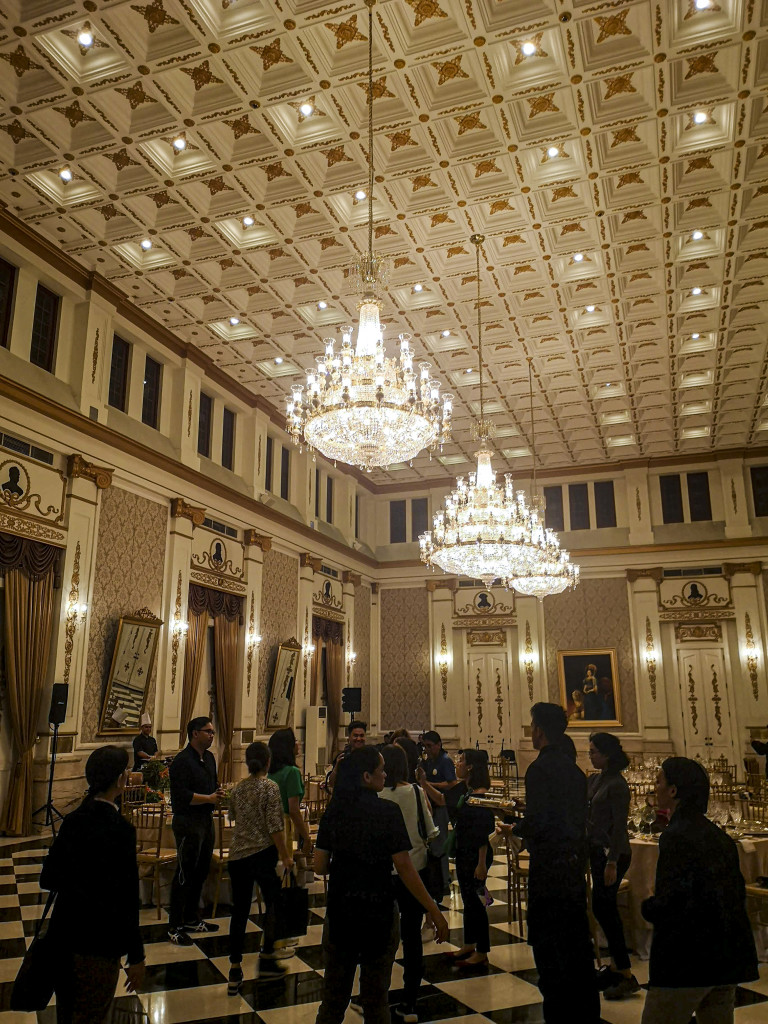
“Intramuros, Rizal Park are under the Department of Tourism. It speaks of our culture our heritage, A lot of tourists come to Manila and they don’t know that we have this treasure here,” said the Tourism Chief, who stressed that lights have also been added to the parks and that they are now open to the public until 11 pm.
If all goes according to plan, The Pasig River Hop on Hop Off Ferry Tour will commence its commercial run on March 2020. With these said, it might only be a matter of time before river cruising finally becomes a thing for us in the metro.
###
Interested parties may inquire directly with the Philippine Tour Operators Association (PHILTOA) at (632) 8812 4513 or email infor@philtoa.com.
“

